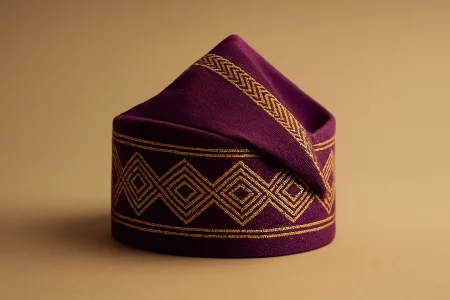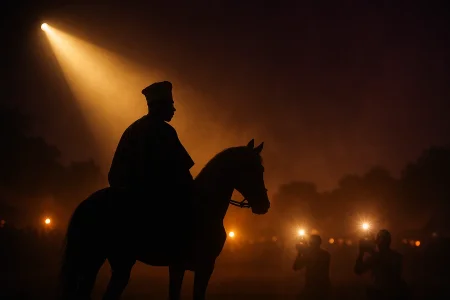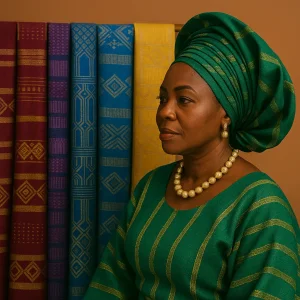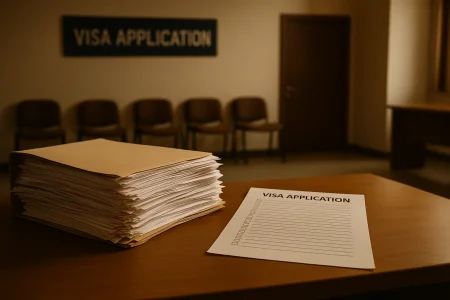
Standing before a mirror, adjusting your gele for the third time, you wonder: "Am I prepared for what I'm about to experience?" Beyond the Instagram-worthy photos and viral videos lies a celebration with layers of meaning that transform casual observers into cultural participants. Understanding Ojude Oba's deeper currents fosters an authentic connection, rather than merely attending on a surface level.
The Cultural Foundation
- Religious Harmony as Living Philosophy; Ojude Oba emerged from a radical act of religious tolerance around 1879. When Awujale Afidipote allowed Muslim converts to practise freely without persecution, grateful believers created this homage ceremony. Today, it demonstrates how different faiths can come together in celebration—Muslims initiate, Christians participate, and traditionalists contribute. This isn't theoretical unity; it's practical wisdom for Nigeria's diverse society.
- Age-Grade Democracy in Action: The regberegbe system reveals sophisticated social organisation. These aren't just parade groups—they're community networks providing mentorship, business connections, and social support. Each age grade has responsibilities: education funding, infrastructure projects, and conflict resolution. Watching them parade reveals democratic leadership principles that are older than colonial structures.
- Economic Ecosystem Beyond Tourism: Behind the pageantry lies serious commerce. Textile merchants earn annual profits during festival weeks. Hotel bookings are available in Lagos and Abeokuta. Local artisans sell months of accumulated crafts. Transport operators multiply earnings. Food vendors create festival-specific delicacies. According to hotel CEO Adewale Adenugba, "the festival generates billions in revenue, benefiting not only Ijebu-Ode and Ogun State but also Nigeria."
The Participation Insights
- Horse Culture as Status and Skill: The equestrian displays aren't mere spectacle—they preserve West African horse culture traditions spanning centuries. Families invest heavily in horses, training, and regalia. Each rider represents generational knowledge of horsemanship, leatherworking, and animal husbandry. The youngest riders carry forward skills their great-grandfathers mastered.
- Fashion as Cultural Language: Aso oke isn't just clothing—it's communication. Colours signal family affiliations. Patterns indicate regional origins. Weaving techniques preserve ancestral knowledge. The textile displays showcase Nigeria's most sophisticated fashion heritage. Understanding these visual codes transforms observation into cultural literacy.
- Photography Etiquette as Respect: Mobile phones changed festival dynamics dramatically. Older participants appreciate respectful photography requests. Some groups welcome interaction; others prefer observation. Learning traditional greetings, such as "E ku asubu" (Good afternoon), and asking permission creates positive exchanges. Cultural sensitivity enhances everyone's experience.
The Deeper Meanings
- Spiritual Significance Beyond Religion: Though rooted in Islamic gratitude, Ojude Oba carries broader spiritual themes: community blessing, ancestral connection, and cultural continuity. The Awujale's prayers encompass all residents regardless of faith. This inclusive spirituality offers healing models for divided communities everywhere.
- Youth Culture Meeting Tradition: Young Nigerians increasingly see traditional festivals as cool rather than old-fashioned. Social media amplifies cultural pride. Fashion designers incorporate traditional elements into contemporary styles. Musicians reference festival imagery. This generational bridge strengthens rather than weakens cultural transmission.
Ojude Oba rewards cultural curiosity with an authentic connection. Your preparation creates space for meaningful encounters beyond beautiful photographs.
Sources:
- The Conversation: Nigeria's Ojude-Oba festival celebrates heritage with colourful parades and horsemanship (September 2024)
- Pulse Nigeria: Ojude Oba Festival fosters unity and economic growth - Ladi Balogun (June 2024)
- Wikipedia: Ojude Oba festival (2025)
- Academic research: Ijebu Ode's Ojude Oba Festival Cultural significance (2015)




